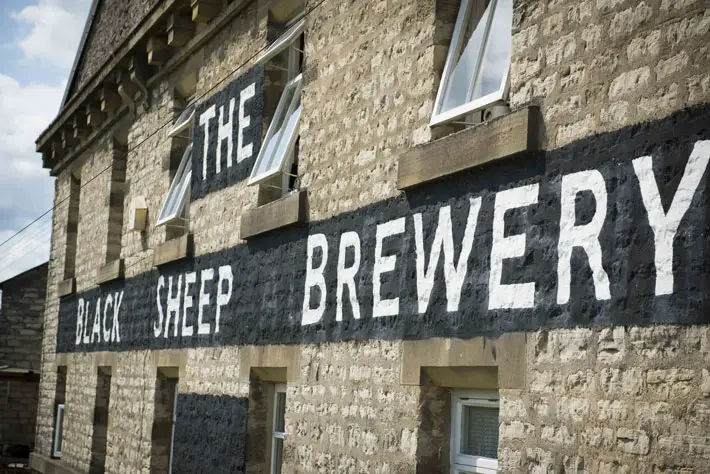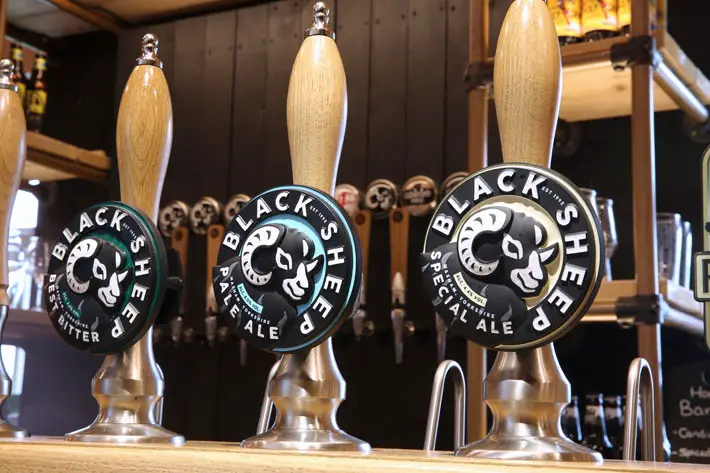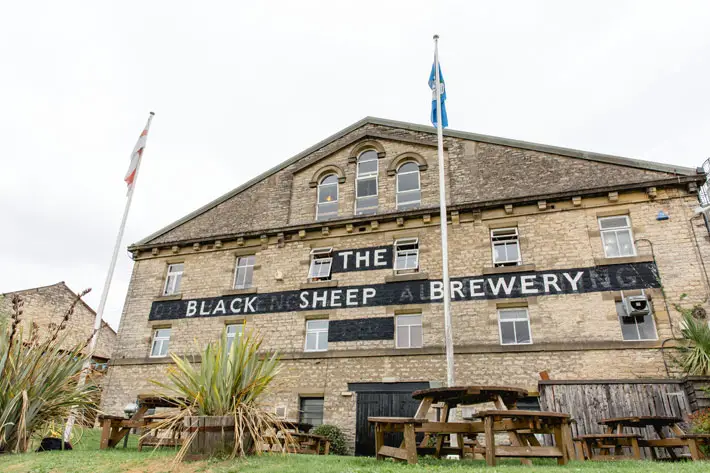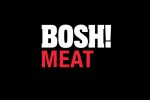The Story of Black Sheep Brewery, Masham
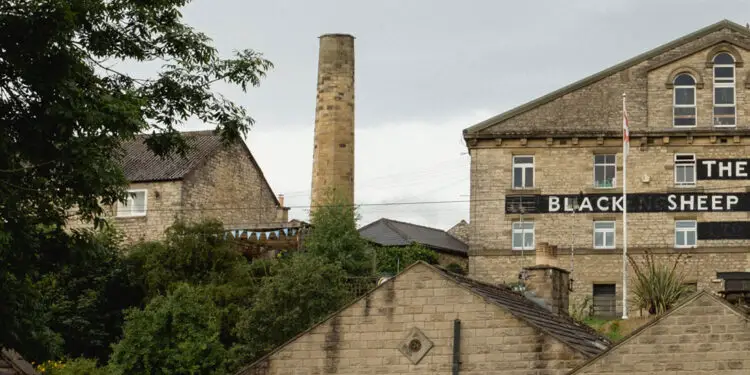
When Paul Theakston started to plan his own brewery – ‘it was a case of the cobbler sticking to his last’ – he found there were many hurdles in the way. He needed financial backing and he also had to find suitable premises. A site came in the shape of the former Lightfoot maltings. It was owned by a local milling company I’Ansons and it was willing to sell to Paul, but access to the buildings was through the White Bear pub now owned by S&N.
‘We had to change the access. It took I’Ansons two years to negotiate a deal with S&N to build a new entrance and I sat at home chewing my nails,’ Paul says. ‘But in spring 1991 we finally exchanged contracts and I set out on the rocky road of recreation.’
He was determined to brew beers with a proper Yorkshire taste. He raised £750,000 from the government’s Business Expansion Scheme and attracted 700 shareholders who backed his vision of a brewery with strong Yorkshire roots. When Robinsons in Stockport closed its subsidiary brewery, Hartley’s in Cumbria, Paul was able to buy the mash tun, copper, hop back and malt mill at scrap prices.
“You get a classic Yorkshire bitter”
The key to the character of the beer, Paul knew, could come from using Yorkshire squares. These are two-storey vessels in which fermenting beer rises from the bottom chamber to the top one where some of the yeast is retained.
Paul wanted traditional squares made of slate, not steel, and they came in the shape of the vessels on offer at Hardy & Hanson’s brewery in Nottingham that had been bought by Greene King and was due to close.
‘The squares make the difference. I didn’t want a clone of Theakston’s Best. We used Maris Otter malt and Fuggles and Goldings hops and we got the H&H yeast strain that had been in use since at least the 1920s,’ he says. ‘We’re now the guardians of that yeast. It’s highly flocculent [i.e., the yeast cells clump together] and needs constant rousing. Rousing introduces oxygen and you get a classic Yorkshire bitter with a smooth mouthfeel.’
“A fitting name”
Paul had a brewery and he had a vision. ‘We set up the plant with the express intention of creating a country brewery producing traditional cask beer with simple, traditional materials – proper cask beer born and bred in Yorkshire.’
He lacked one vital thing: a name for the brewery. He couldn’t use Lightfoot as that was owned by S&N via Theakston. The proverbial lightbulb flared thanks to Paul’s wife, Sue, who told him that when he produced his beers he would ‘become the black sheep of the family.’ It was a fitting name, given Masham’s history in the wool trade with the surrounding hills dotted with black-faced sheep.
A design agency produced a logo featuring a sheep and in 1992 Paul launched Black Sheep Best Bitter and Special: the beers were blessed by the local vicar, much to the chagrin of S&N next door.
Paul relied on the free trade to take his beer and there was a clamour for them throughout Yorkshire and beyond. The very first brew of Special went to Marks & Spencer in bottle at a time when there were no premium ales in supermarkets.
“Stabilised the brewery”
Growth was rapid and today Black Sheep produces around 60,000 barrels a year with wholesalers distributing the beers nationally. The three main pub groups – Ei, Mitchells & Butlers and Punch – take the beers and Black Sheep is the second biggest cask beer in the Punch group.
Recent years, though, have been tough. Paul admits he was ‘caught on the hop’ by changing consumer demands and the burgeoning microbrewing sector, aided by Small Brewers Relief. ‘Micros now account for 30 per cent of the cask sector,’ Paul says. ‘Older brewers are being squeezed. If you have to pay the full rates of duty, the margins are very thin.’
Paul’s sons, Rob, the managing director, and Jo, the sales director, have stabilised the brewery and are returning the business to profit. They are growing supermarket sales and export, have expanded the range of beers and have introduced a lager, 54˚ Degrees – Masham’s geographical position – using German malt, imported hops and four to five weeks’ maturation. They have a five-barrel micro plant where they devise new beers and there’s a rolling programme of seasonal ales.
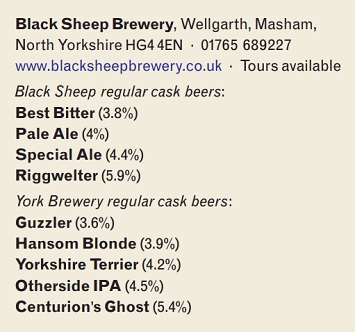 “Proper traditional beer”
“Proper traditional beer”
The big departure is that Black Sheep is planning a small estate of pubs in order to get some protection from cost-cutting micros. They will complement the superb visitor centre that offers brewery tours, a large bar and bistro meals planned by Sue Theakston. Andy Slee, ex-Punch Taverns, has joined as company chairman and will use his experience to buy the right pubs in the right places.
The marketing strategy may be changing but Paul Theakston’s vision back in the early 1990s remains untouched: brewing proper traditional beer made by proud Yorkshire folk. Paul can afford to take the long view of that turbulent history. He is now a non-executive director and has handed over the day-today running of Black Sheep to Rob and Jo.
He keeps a close eye on developments, however, and his agreement was sought when Black Sheep bought the York Brewery in 2018. It wasn’t a takeover as York had gone into administration and closed. Black Sheep now runs York’s four pubs in York and Leeds. The beers are currently brewed in Masham but will move back to York when a suitable site is found.
But let there be no doubt that Paul’s and Black Sheep’s roots remain firmly in Masham, the family home.
Images: Mark Newton Photography (courtesy of Black Sheep Brewery)
For more info visit: blacksheepbrewery.com
